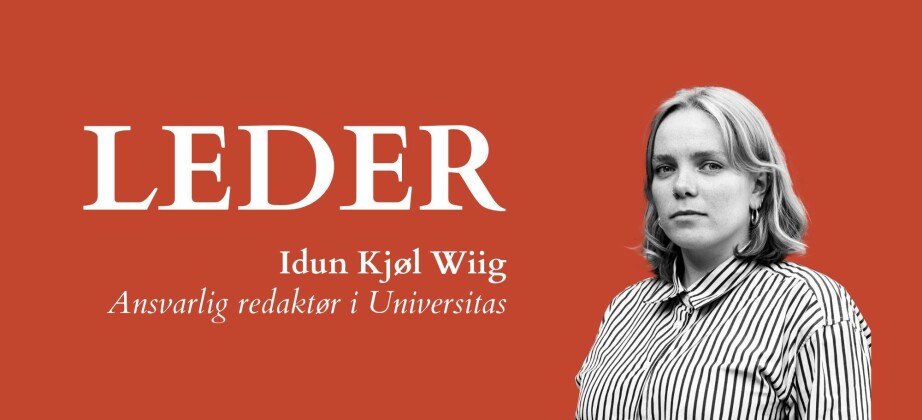
Exchange – the good ship
The captain is cheerful. But has the exchange-ship sailed?
Sectional manager of UiO’s section for internationalisation, Guri Vestad, probably had to pinch her arm when she saw the latest numbers regarding student exchange to and from UiO. In pure excitement, she proclaimed that «the objective was reached». However, here it would be necessary to run some cold water down her neck.
Vestad`s «dream» is Strategy for student mobility 2003-2006, which aims to double the frequency of exchange programmes during this period compared to statistics from 2001. The statistics indicates, however, that UiO had a total of 1481 exchange students (both to and from Oslo) in 2005 compared to 866 in 2001. To call this double the amount is imprecise at best. There is still a long way to go. Exaggerations are fine and dandy in everyday life, but this is in violation of elementary business ethics.
Looks may also be deceiving. Turning back the time to 2000, UiO was thenable to brag about 2120 exchange students. From this perspective, the numbers indicate a step back, and double the amount seems far-fetched. And UiO is lagging behind the other universities: 2.5 per cent of students participated in exchange programmes last year compared to 3.5 per cent in Bergen and Trondheim. How can it be that the largest university in the country is holding exchange programmes back?
Perhaps UiO is not your average destination of dreams?
One answer is that UiO has not succeeded in attracting enough students to UiO compared to the numbers that travel from UiO. To blame steep Norwegian living expenses is probably somewhat defensive. Perhaps UiO is not your average destination of dreams? That the arrangements for academic and social integration are insufficient? It is in any case worth mentioning that 16 per cent of international students said they felt discriminated by or at UiO, according to the survey Studentspeilet. This should be a wake-up call for every last one of us.
This shortcoming results in considerable red numbers on faculty budgets. Credits achieved abroad give no income. Financial incentives subsequently open for working against rather than stimulating increased exchange frequency. In last week’s edition of Universitas, the management at both the Faculty of Theology and the Faculty of Education admitted that exchange programmes are often given lower priority in the event of austerity measures. This tendency hardly applies only to small faculties.
Another answer is that exchange programmes have yet to become common practice, but are kept alive at an individual level. As a Master’s degree student at a relatively large department, I have experienced myself how unfavourable it is to have only one person in charge of exchange programmes. When the person in question called in sick, everything collapsed, and students were by and large left to themselves. As a result, many chose to stay behind and put aside their dreams for good.
There is no denying that some students are lazy, laid-back and work-shy creatures who are unable to take control of their lives. Nevertheless, there is reason to call for better information and guidance when it comes to exchange programmes. If we also had a financial system where financial losses regarding exchange programmes were less obvious, well, then I suppose more students could surf the waves of internationalisation.
































